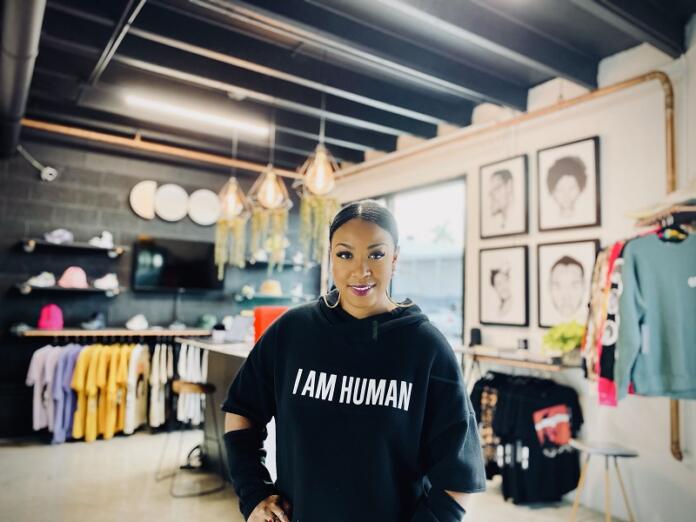
The police killing of George Floyd in Minneapolis last summer reignited the long simmering Black Lives Matter movement and invigorated broader campaigns for Black equity.
Just before that, in February and April 2020, about 41% of Black-owned small businesses closed, devastated by pandemic-related closures and reduced customer traffic, according to a study by the National Bureau of Economic Research. Although small companies across the board struggled, Black entrepreneurs were hit hardest. Haitian owned businesses in Miami rode the economic wave.
Yet, these dual crises also inspired new investments in Black businesses, reinforced long-standing traditions for Black communities to look after their own, and spurred some to pursue new opportunities despite pandemic uncertainties.
“It’s hard to quantify how many Haitian owned businesses are in South Florida, so it’s harder to say how many closed last year,” said Djénane St. Fleur, vice president of the Florida-based Haitian American Chamber of Commerce. Nonetheless, the organization has worked to limit the harm, offering classes on topics such as how to apply for grant funding. The chamber also supports Haitian restaurants by regularly purchasing hundreds of meals for its food distributions.
“We want them to survive,” St. Fleur said.
Some have managed to thrive.
Two sisters opened Welcome to Little Haiti, an online coffee shop that grew while competitors shut down. With the support of grants established for Black businesses in the revolt against racism, the owners of a digital marketing and clothing company expanded their reach. And Christian Dominque kept his restaurant, Manjay, open while carving out plans for new ways to feed Miami.
All agreed that 2020 was a challenge, but they survived because of expanded, targeted support for Black ventures. “People were DM-ing me on social media, asking me, ‘Are you a Black business? I want to support you,’” Dominque said.
Joann Milord, of Welcome to Little Haiti, said friends and family supported her business first, then others followed.
Black customers always were the core customers of COOL Creative, but Co-founder Johanne Wilson noticed increased interest after the social justice revolution. For that, she’s thankful.
Learn more about these three Haitian owned businesses, which either started during the pandemic or scaled up to meet opportunities while many wondered if the sky had indeed fallen.
Welcome to Little Haiti
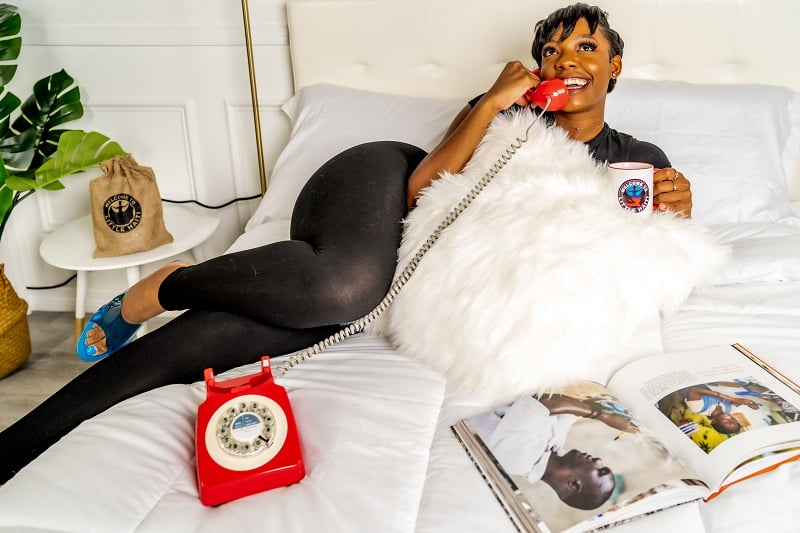
Joann Milord grabbed onto a concept that puts focus squarely on her culture and a changing Miami neighborhood, Little Haiti.
Milord remembers drinking Haitian coffee from an aluminum cup with a saucer when she was sent to the island for childhood summer breaks. Coffee beans grown in Haiti are known for producing a mellow-bodied dark roast that is smooth, slightly sweet and low in both bitterness and acidity. The brew is traditionally enjoyed black to savor the natural flavor, often including hints of smoke and chocolate.
The drinkability of plain Haitian coffee stands in contrast to the cafe cubano — a sweetened espresso with cream foam — served in little plastic cups at walk-up windows throughout Miami.
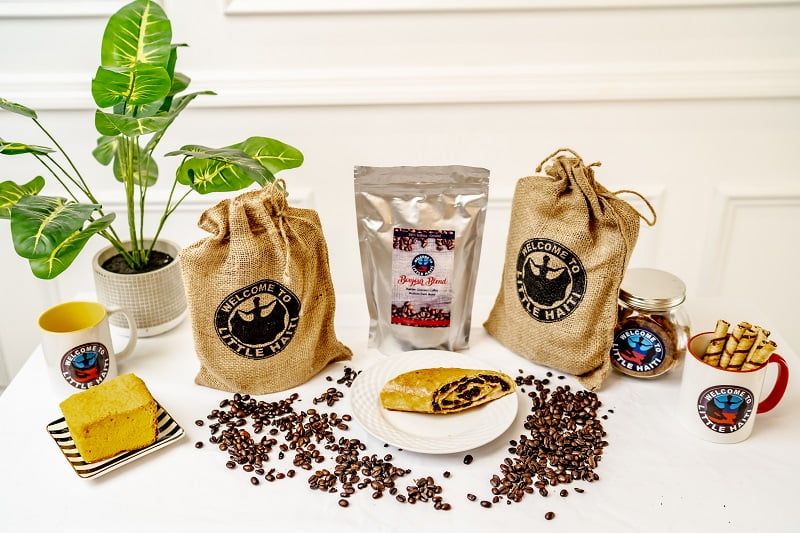
Milord married her love for Haitian coffee and Little Haiti to launch Welcome to Little Haiti, an online coffee and merchandise store that aims to support Haitian owned businesses and preserve Haitian traditions.
It started when COVID-19 upended life as she knew it. Milord resisted the urge to curl up in loungewear and ride out the pandemic. Instead, she used the time for introspection and to answer the question: What’s next?
In previous roles at Miami Bayside Foundation and the Haitian American Chamber of Commerce of Florida, Milord helped small Black businesses solve problems. She drew on that experience and realized the time was right to elevate Haitian culture. Milord also reflected on how the 18-acre Magic City Innovation District was changing the face of Little Haiti. Dubbed a campus by developers, the district will include residences, retail shopping, a business incubator, and art and public spaces. Although some have criticized the development, Milord knew it was inevitable and seized the opportunity to be a part of shaping what it would become.
“Little Haiti is the epitome of Haitian culture,” she said. “We just want to highlight aspects of the culture.”
COOL Creative
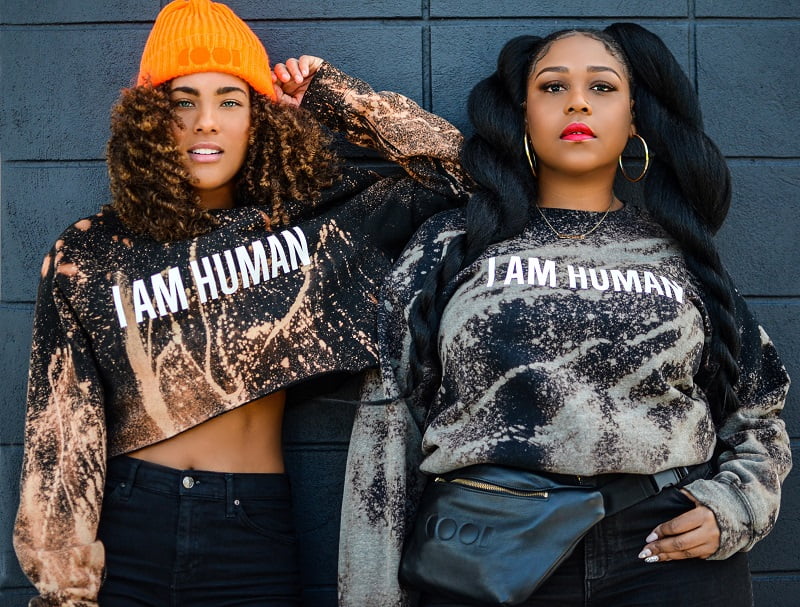
COOL stands for Create Out Of Love. The phrase captures the people-centric philosophy of this boutique-style brand design and digital agency that has a specialized focus on Black customers and businesses.
Love, art and culture also were behind the business’ latest and, arguably, most popular expansion. An illustrator by trade, Co-founder Terrance Wilson drew Black historical figures to teach his daughter about significant people of color. Then he started putting the faces of Angela Davis, Tupac and Maya Angelou on clothes.
“People bought them; people really took to them,” said Johanne Wilson, Terrance’s wife and COOL’s co-founder. “We took it casually and did the apparel just for fun. Some celebrities got a hold of it, and it started to gain some traction. Then we got some wholesale orders.”
The owners decided to open a store in Miami. They signed a lease in December 2019 and opened March 2020 – just as COVID-19 awareness flared. Soon, they struggled to fill orders.
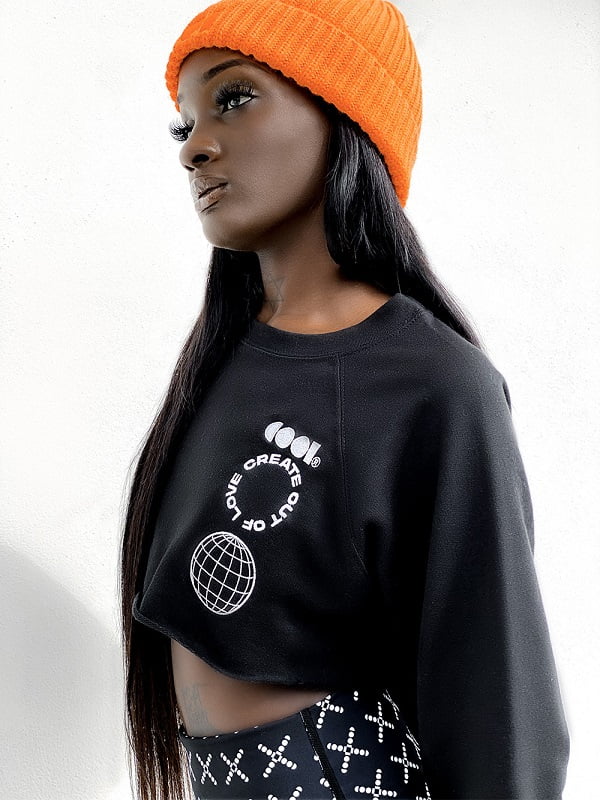
“We were set up to do really well in 2020 and then everything happened,” Johanne said. “We did the most with what we had. We kept on pushing. We are not complaining. Everyone went through it.”
Always on the lookout for ways to support the business, Johanne entered Comcast Rise, a program to provide marketing support to underrepresented business owners. She won three months of advertising on Comcast Network. That led to an appearance on the Kelly Clarkson Show and another $5,000.
The social justice revolution of the summer propelled the COOL brand even further. Many of the shoppers were of African-descent, seeking ways to support Black businesses and to honor Black history makers.
Manjay

Black Americans, including people of Caribbean descent, have always been frequent customers at Manjay.
Christian Dominque established Manjay in 2017, planting it in The Citadel food hall in the Little River neighborhood of Miami. He and his wife, Sabrina, reimagined the cuisines of Caribbean islands – Haiti, Jamaica, Dominican Republic, The Bahamas and others – as fast-casual dishes. “I use the influence I get from the islands and make it modern,” said Dominque, who grew up working in his family’s hospitality businesses. “I take flavors in those dishes and create something unique.”
The business thrived. COVID-19 tested its resiliency.
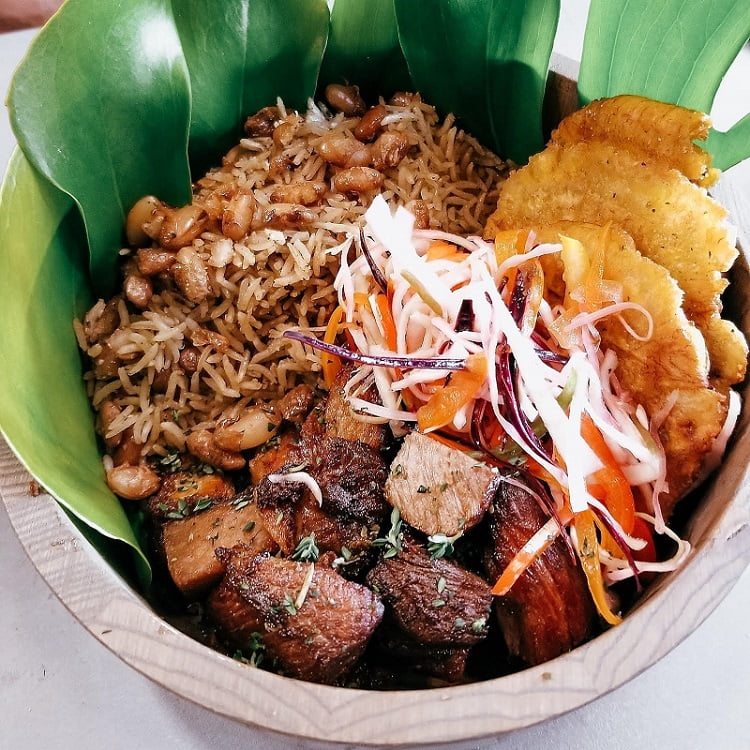
Dominque offered family-plan meals for takeout. When Uber offered free delivery to customers who bought from Black businesses, sales soared.
“People weren’t coming out. That campaign made my sales increase 100%,” he said.
Instead of retreating or holding steady until the economy rebounded, Dominque expanded instead. He secured a second brick-and-mortar location in Wynnwood and soon will launch a food truck, which will be powered by Instagram updates on location and menu.
“Most of the investors that I have read about invest when times are not good,” Dominque said.
There are many other Caribbean and Haitian owned businesses you can support. Read about them on islandoriginsmag.com.































